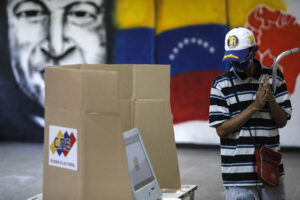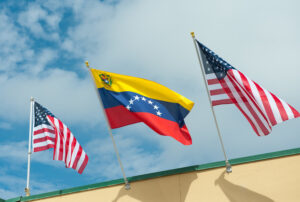Venezuela’s opposition political forces are facing important strategic dilemmas in their efforts to push for a peaceful, democratic solution that restores rule of law and Venezuelans’ right to elect their own leaders. Two recent WOLA op-eds analyze why self-reflection by the opposition is urgently needed and what an alternative approach could potentially look like.
In an op-ed published on July 20 in New York Times en Español, WOLA Senior Fellow David Smilde and University of Southern California faculty emeritus Abraham F. Lowenthal argue that the opposition needs to develop a more realistic approach. “A highly autocratic government cannot lose power simply because it is widely seen as illegitimate…only when there is national support for a credible alternative force, capable of gaining the support of the armed forces and a large part of the business sector, civil society and public opinion, and demonstrate the managerial and technical capacity to lead the country,” they suggest.
This was preceded by an op-ed published on July 8 in El País by Smilde, arguing that comments by President Donald Trump, alongside revelations in former U.S. National Security Advisor John Bolton’s book, highlight how Venezuela was never a central issue for President Trump. Bolton’s book reveals a U.S. administration that is poorly informed on Venezuela and has done little planning or deep thinking about what to do. Instead, the emphasis seems to be on policies that play well among the Venezuelan diaspora in Florida, a state key to Donald Trump’s possibilities for re-election.
As WOLA has previously noted, this state of affairs should be extremely troubling “for an opposition coalition that has sought to convince itself and the population that the U.S. has a strong and meaningful bipartisan commitment to the interim government, and that Trump has a deep personal commitment to seeing a change in Venezuela.”
Venezuela’s opposition should confront this reality and recognize that a miracle solution to the political crisis isn’t going to arrive via the United States. That means rejecting counterproductive, magical thinking by hardliners who support maximum pressure or the use of force.
Read the El País op-ed in Spanish here, and the the New York Times en Español op-ed in Spanish here.
For more analysis and updates on the latest developments in Venezuela’s crisis, and how Venezuelans are resisting authoritarianism and defending their human rights, visit WOLA’s Venezuela Politics and Human Rights blog.


